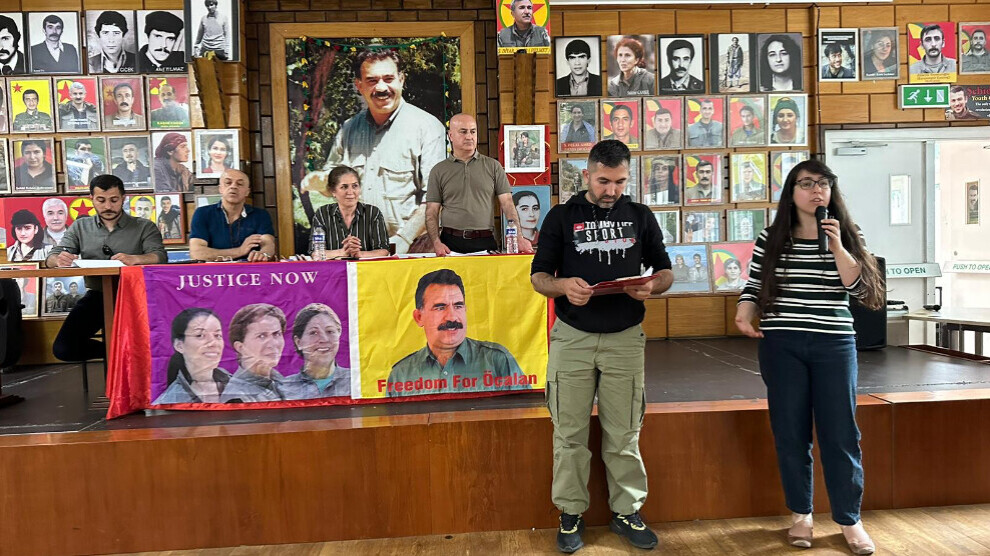British Kurdish People's Assembly holds congress
The British Kurdish People's Assembly held its 14th Ordinary Congress with the participation of its parliamentary, commune and community centre delegates.
The British Kurdish People's Assembly held its 14th Ordinary Congress with the participation of its parliamentary, commune and community centre delegates.

The British Kurdish People's Assembly held its 14th Ordinary Congress at the Kurdish Community Centre (KCC) in London. The congress was held with the participation of Kurdish People's Assemblies in England, Scotland and Wales, city communes, and delegates from the PYD, the PJAK and the KCDK-E South Kurdistan (Bashur) Representation.
The congress started with the election of the council following a one-minute’s silence in memory of those who lost their lives in the struggle for revolution and democracy. After the formation of the council, the political and organizational report of the Civaka Azad was read out by the British Kurdish People's Assembly Co-Chair Miraz Serhad.
Reports on the organizational evaluations of the London, Liverpool and Scottish Kurdish People's Assemblies within the British Democratic Kurdish People's Assembly, PJAK, PYD and KCDK-E Bashur representatives, Liverpool and Exeter Communes, Sheffield Initiative and the youth and women's movement were read out during the congress.
At the congress, where the organizational situation was harshly criticized, participants stressed that the Civaka Azad suffered a serious setback and motivation problem and performed poorly. It was underlined that Civaka Azad failed to overcome ideological shortcomings and no assembly performed properly.
Furthermore, it was stated that the assemblies did not develop a resistance and struggle congruent to the ones in Kurdistan, and criticism was directed at the inadequacy of Kurdish diplomacy.
After voting, Seyit Suruç from North Kurdistan and Aso Kerimi from East Kurdistan were elected as the co-chairs of the British Kurdish People's Assembly.
After the election of the co-chairs, a council of 6 people was formed within Civaka Azad, representing the four parts of Kurdistan. The disciplinary and adjustment board was reconstituted, and an education commission was formed during the congress.